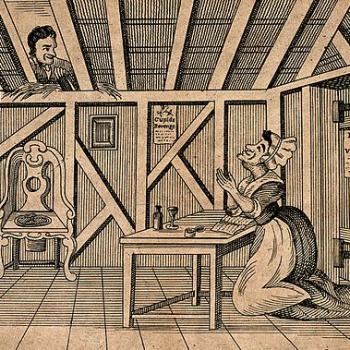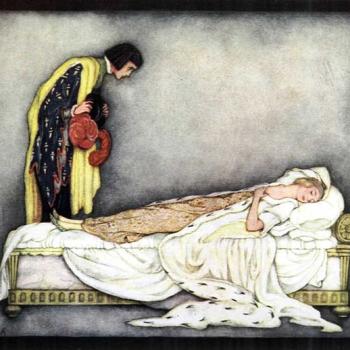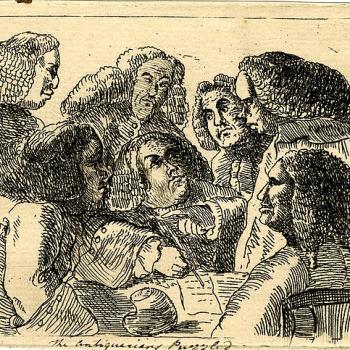In the second book of Samuel, in chapter 12, we read the story of how King David’s infant son dies as punishment for David’s adultery with the baby’s mother, and for the king’s complicity in the murder of the mother’s husband. While the child lingered in illness, David prayed desperately and fasted, imploring God for the baby’s recovery. After the infant dies, the king washes, resumes his usual countenance, and sits down to a meal. His courtiers respond with these words:
“Why are you acting this way? While the child was alive, you fasted and wept, but now that the child is dead, you get up and eat!”
David answers them coolly: “While the child was still alive, I fasted and wept. I thought, ‘Who knows? The Lord may be gracious to me and let the child live.’ But now that he is dead, why should I go on fasting? Can I bring him back again? I will go to him, but he will not return to me.”
And here we have, I think, a rather vivid insight into what I call “the Will of God problem”. I will approach the issue by stating at once that, yes, we can in fact have a very good idea what God’s general will is, in almost all moral matters. Generally speaking, He is dead-set against cruelty, adultery, idolatry, blasphemy, rape, unjust dealings in business, and so on. We can find in Scripture chapter-&-verse where these things are condemned by Him in no uncertain terms.
But in specific instances – in localized cases full of unique details – many times we have to say with King David, “Who knows?” Who can say what the Lord’s will is in this particular situation? David (who was, after all, a man after God’s own heart, and a man God actually spoke to on occasion) had no idea whether God would heal his son or not. The king took a chance and gambled that God would heed his call for mercy. We ourselves, of course, pray for healing when an illness strikes us, and we know that the Lord is merciful and kind and loves His children. But who knows? Perhaps this minatory pain is a purposeful trial that falls under the heading of “discipline”, or “refinement”, or “training unto wisdom”. Perhaps the illness will be temporary or benign and your prayers will be answered quickly, so that God gets the glory. Perhaps it will last indefinitely and result in death, for a reason that is by no means apparent to you. Or perhaps the affliction will disappear only as a result of modern medicine, leaving you wondering why God allowed science to “get the glory” instead of Himself.
Archbishop Lancelot Andrewes, in a sermon preached before King James I in 1620, asked the question: “How shall we then make faith of our faith? Of itself it is but a bare act, faith, a thing indifferent, the virtue and the value of it is from the object it believeth in; if that be right, all is right.”
Indeed. It is the object of our faith that makes faith commendable. There is no “virtue” or “value” in believing in false gods. It just might be that when we pray for healing in the throes of a sickness, we imagine we are praying to a god who dispenses healing rather automatically, as though he couldn’t help himself – as if we see him as so good and kind that he really wouldn’t do otherwise. That is a false god, of course, and when I spell it out like this, one can easily see how false such a god is. Yet in our illness — when we are in extremis — we are much more inclined to cling to a god we imagine more indulgent than perhaps He really is.
Good beyond measure He certainly is. Merciful and “with healing in His wings” He certainly is. We cannot overestimate His love for us. But the flipside of the coin of love is discipline. And “who knows?” whether (on any particular day) what we really need – and what we shall profit most from in the circumstances – is love or discipline? The commendable object of faith is His unknowable and inscrutable will, whatever it may be — not the false idol of a spoiling, overindulgent father. His will is good, no matter how contrary to ours it may be. King David demonstrated this for us when – after being denied his wishes by God – he washed, anointed himself with an oil that made his face shine, and sat down peacefully to a meal fit for a king.













